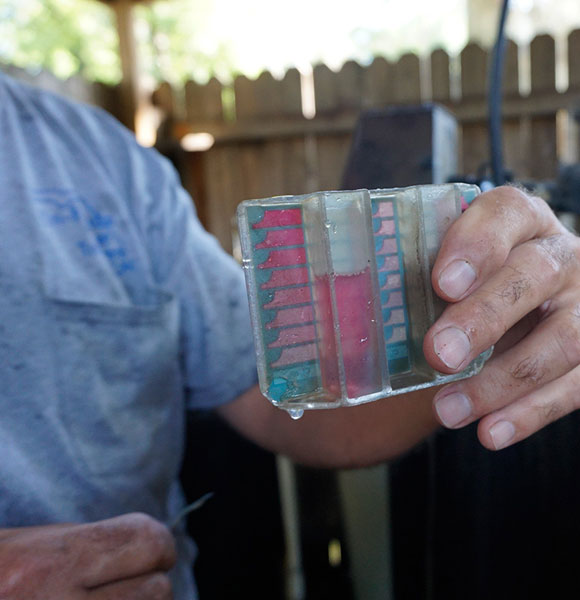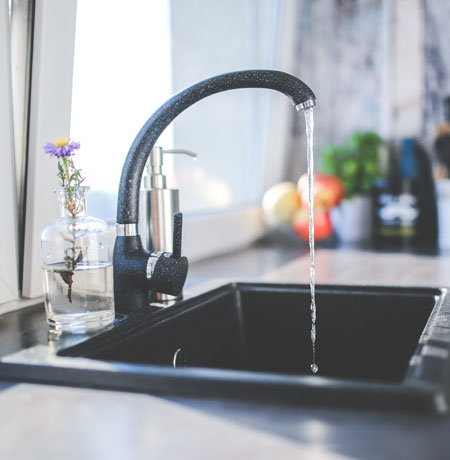How Do Water Filters Work?
Water filters provide you with the cleanest, best-tasting water. It’s time the word got out about how they work and what makes filtered water better than bottled water!
Picking up bottled water is the go-to solution for most people who are concerned about their water quality. Unlike filtered water, bottled is most likely the same quality or worse than the water coming out of your tap right now. A water filtration system is the smartest solution if you don’t like the taste of your water or are concerned about contaminates.
 What do water filters do?
What do water filters do?
While most tap water in the U.S. is safe to drink because the Environmental Protection Agency (EPA) regulates our water quality, nasty contaminates could be hiding in your water that you don’t want to consume. Water filters remove these impurities that find their way into local water supplies.
Water filtration systems purify H20 by capturing and removing unpleasant and harmful impurities. That’s why filtered water is safer, cleaner and better-tasting. A water filter can remove:
Dirt and sediment
Organic chemical contaminants like petroleum runoff
Inorganic contaminants like hard metals and salts
Microbial contaminants like bacteria and viruses
Pesticides and herbicides
Radioactive contaminates whether naturally-occurring or man-made
How do water filters work?
All water filtration systems remove contaminants and impurities. How they do this and how effective they depend on the type of filter. There are five main types of water filters:
Mechanical
Mechanical filters use a fine mesh or ceramic filter to remove sediment, dirt and other particulate impurities in water including pathogenic organisms. These types of filters are especially effective for homes with well water or old plumbing.
Activated Carbon
Activated carbon filters are the most effective at removing harmful contaminants without stripping beneficial mineral nutrients from the water. The inside of this filter contains activated carbon material such as coconut shells. As water passes through the filter, contaminants get stuck to the surface of the carbon material. Activated carbon filters can remove more than 70 types of contaminates!
Reverse Osmosis (RO)
Reverse Osmosis (RO) filters use the process of osmosis to remove contaminants from water. These types of filters can remove even more contaminants than activated carbon filters! But they also strip out any healthy minerals in the water.
Ultraviolet light filters (UV)
Ultraviolet light filters use ultraviolet light to kill waterborne microorganisms. Usually, this type of filter is combined with another, such as an activated carbon filter, because it cannot remove any other impurities besides waterborne microorganisms.
Ion Exchange (IX)
Ion exchange filters have a saltwater chamber that captures minerals through an ion exchange process. These types of filters are designed for hard water to remove calcium, magnesium and other heavy minerals that cause water to become hard.
Pitcher water filters and under-the-counter filters are typically activated carbon filters. The most effective water filters are combination, whole-house filters. These water purifying systems have at least two filters and clean all the water that passes through your home to ensure that your water is free of impurities.

Tri-Florida Water Treatment’s whole house filtration systems have both a mechanical filter and activated carbon filter. The mechanical filter acts like a sieve capturing sediment, dirt, and particulates. Then the water passes through the carbon filter where harmful chemicals, microbial contaminants, and other impurities are caught.
If you’d like to learn more about how water filters work, give us a call! The experts on our team would be happy to answer your questions.
226 E Lake Ave, Auburndale, FL 33823
(863) 965-1439
